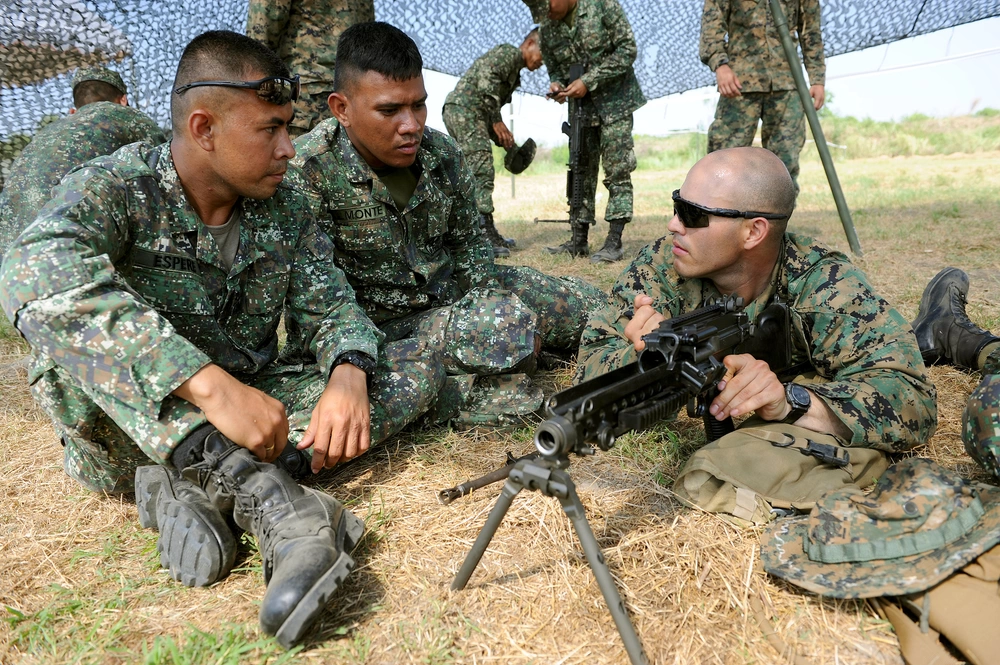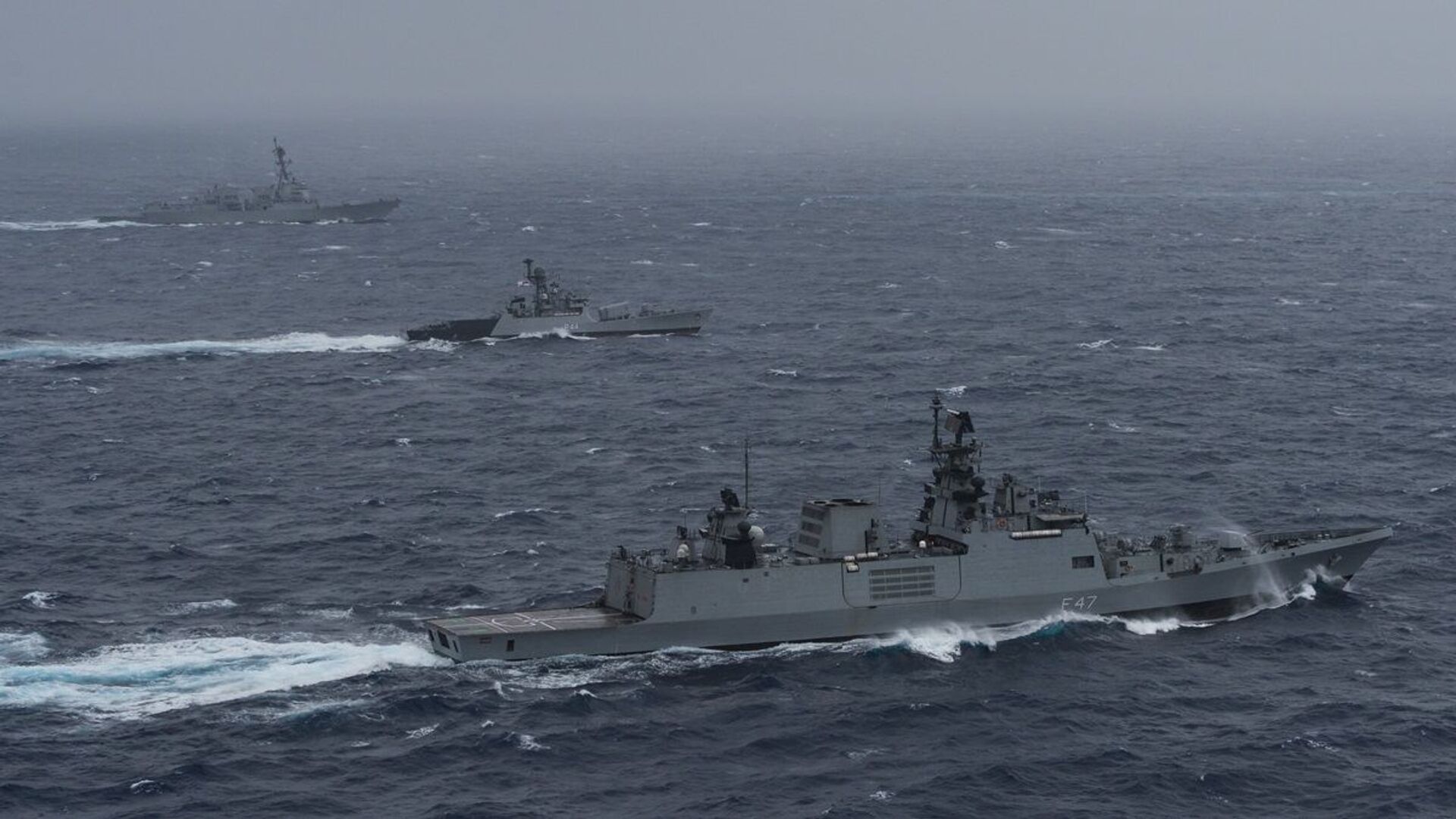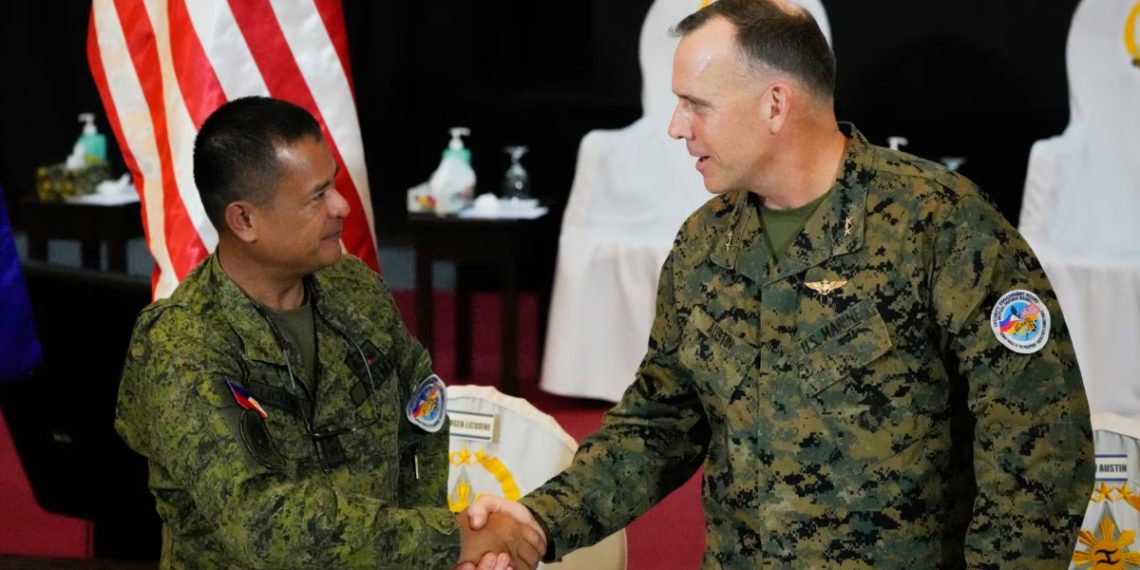Amid escalating tensions in the South China Sea, approximately 17,000 Filipino and American troops commenced a three-week joint combat training exercise known as Balikatan in the Philippines.
This exercise, which includes maritime drills, aims to enhance military interoperability and readiness. France and Australia will participate in maritime exercises conducted outside Philippine territorial waters for the first time, underscoring growing international concern over China’s assertive actions in the region.
Balikatan, meaning “shoulder-to-shoulder,” occurs against a backdrop of heightened diplomatic disputes and maritime incidents between Manila and Beijing.

While officials maintain that the drills are not aimed at any specific aggressor, they emphasize the importance of upholding international law and sovereignty rights.
U.S. Lieutenant General William Jurney clarified that the exercises operate within established norms and contribute to regional stability.
China’s expansive claims in the South China Sea have triggered alarm among neighboring countries and international stakeholders.
The joint drills serve as a reaffirmation of the United States’ commitment to supporting its allies in the region, including the Philippines, against potential armed aggression. Beijing has criticized such exercises, viewing them as provocative and detrimental to regional peace.
The Permanent Court of Arbitration’s ruling in 2016 invalidated China’s claims over much of the South China Sea, citing violations of international law.

Despite this ruling, China has continued to assert its dominance through the construction of military facilities on disputed islands.
During the Balikatan exercises, U.S. and Filipino forces will simulate scenarios involving the recapture of enemy-occupied islands in strategic locations near Taiwan and Palawan province.
With approximately 16,700 troops participating, this year’s exercises aim to bolster security cooperation and readiness in the face of escalating tensions in the South China Sea.





